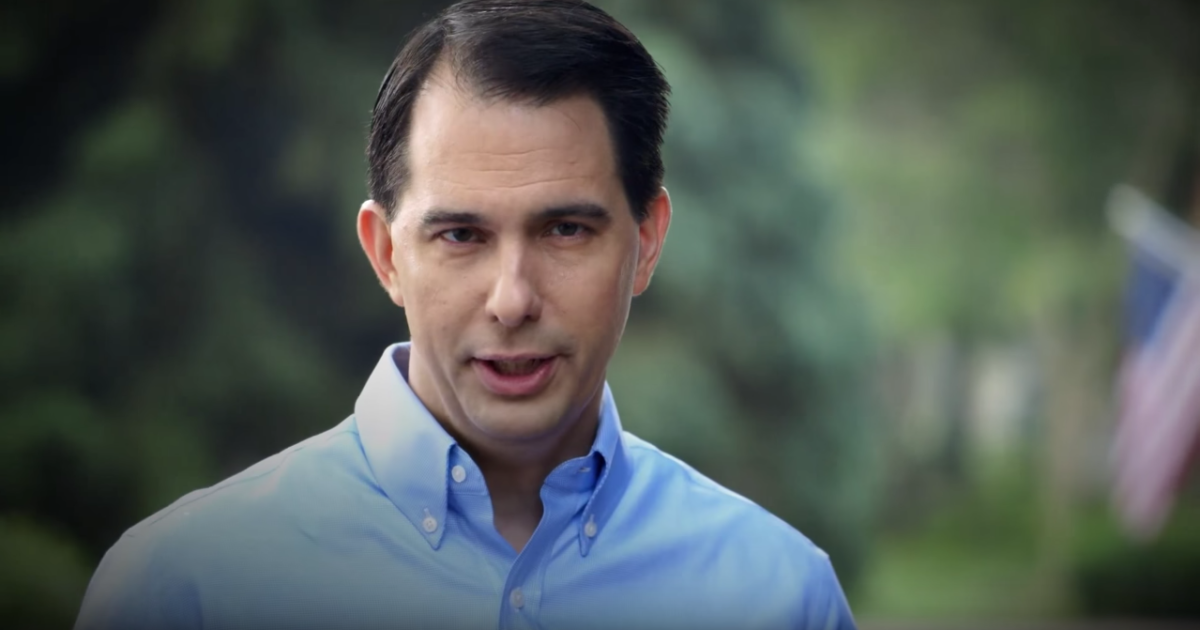That Didn’t Take Long. Gov. Scott Walker Running Campaign Ads on Foxconn Proposal
Appears Scott Walker Negotiated Deal With Only One Job in Mind, His Own

MADISON, Wis. — According to media reports, Gov. Scott Walker has launched political campaign ads to tout his proposal to send $3 billion in state tax dollars to Taiwanese electronics manufacturer Foxconn to bring a factory to Wisconsin. One Wisconsin Now Deputy Director Mike Browne said the ads around the deal suggest re-election politics were at the front of Gov. Walker’s mind as he negotiated in secret with Foxconn.
“That Gov. Walker is already running campaign ads about this deal shows the only job he’s concerned about is his own and he’ll spend whatever it takes to keep it,” commented One Wisconsin Now Deputy Director Mike Browne. “And that includes $3 billion of our state tax dollars.”
According to the terms of a deal negotiated in secret between Foxconn and Gov. Walker, the company will bring a manufacturing plant to Wisconsin in exchange for a massive state subsidy of $3 billion, and likely much more when the costs of associated state and local government financed infrastructure improvements and existing tax loopholes are added.
Experts have noted that Foxconn has a history of making significant demands for government incentives wherever they locate. The state portion of the deal proposed by Walker would, according to an analysis by Professor Michael Hicks, result in taxpayers “… promising to pay Foxconn the equivalent of $66,600 per employee, based on having 3,000 workers in the plant, for each of the next 15 years, while Foxconn is promising pay of less than $54,000 a year. By comparison, the much-touted deal last November to save 800 jobs at a Carrier factory in Indianapolis is costing Indiana $7 million over 10 years — or $875 a year.”
Browne also noted that the proposed tax credits are refundable. That means, because Walker and the Republican controlled legislature have already adopted tax loopholes that essentially eliminate state taxes on manufacturing, taxpayers could literally be required to take $200 million out of the state budget every year to send directly to the foreign based corporation.
In addition, in his desperation to make a deal, Walker agreed to unprecedented provisions that would exempt Foxconn from state laws protecting state waterways and requiring environmental impact statements, allowing them to fill wetlands and divert rivers and streams. Electricity ratepayers could also see their monthly bills increased without any say or state oversight to subsidize additional generation and transmission infrastructure for Foxconn’s operation.
Browne concluded, “This is a massive giveaway of state resources that gets worse the more we find out about it. That Gov. Walker appears to have negotiated it with his own re-election bid at the forefront of his mind explains a lot.”
